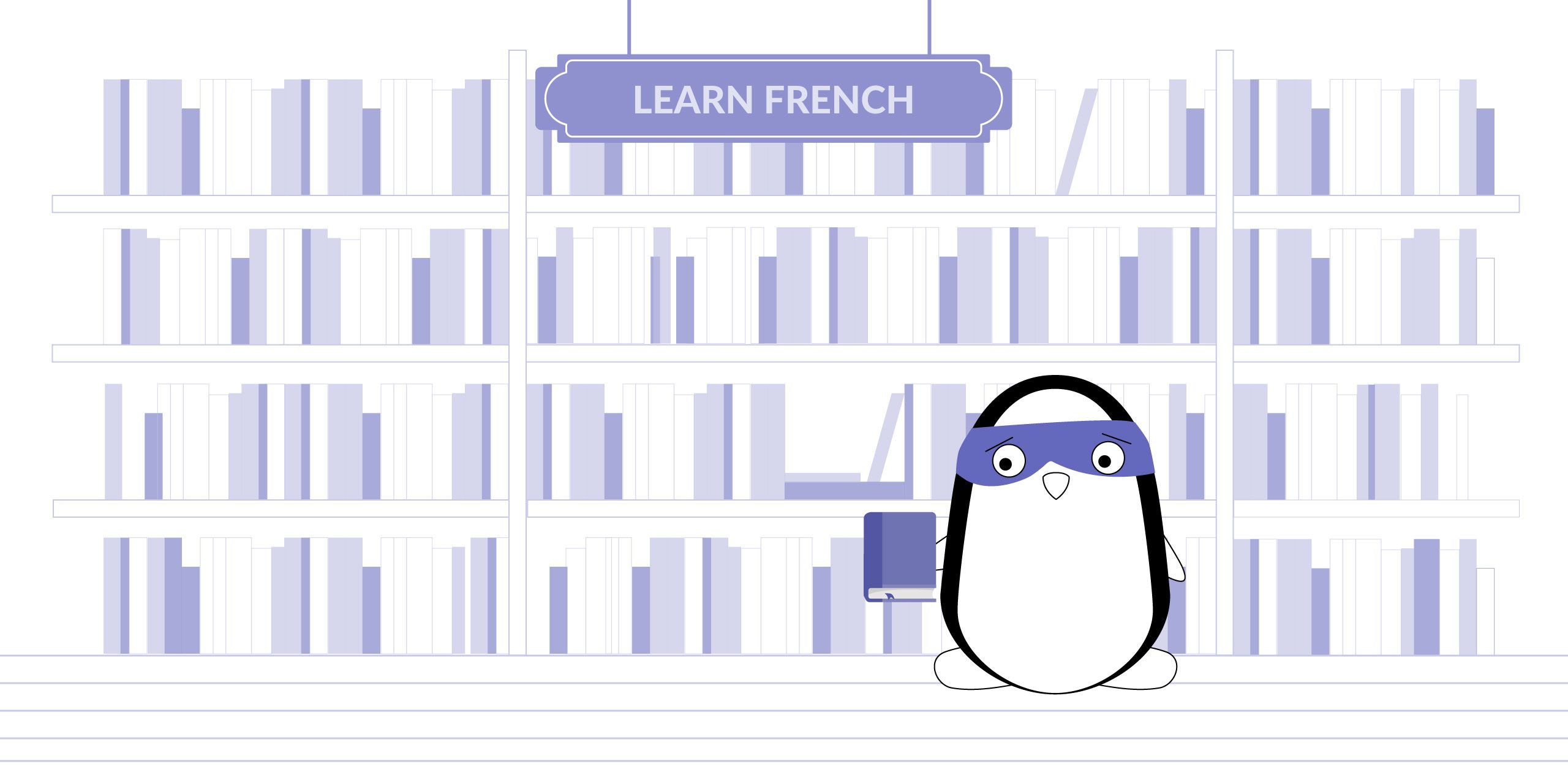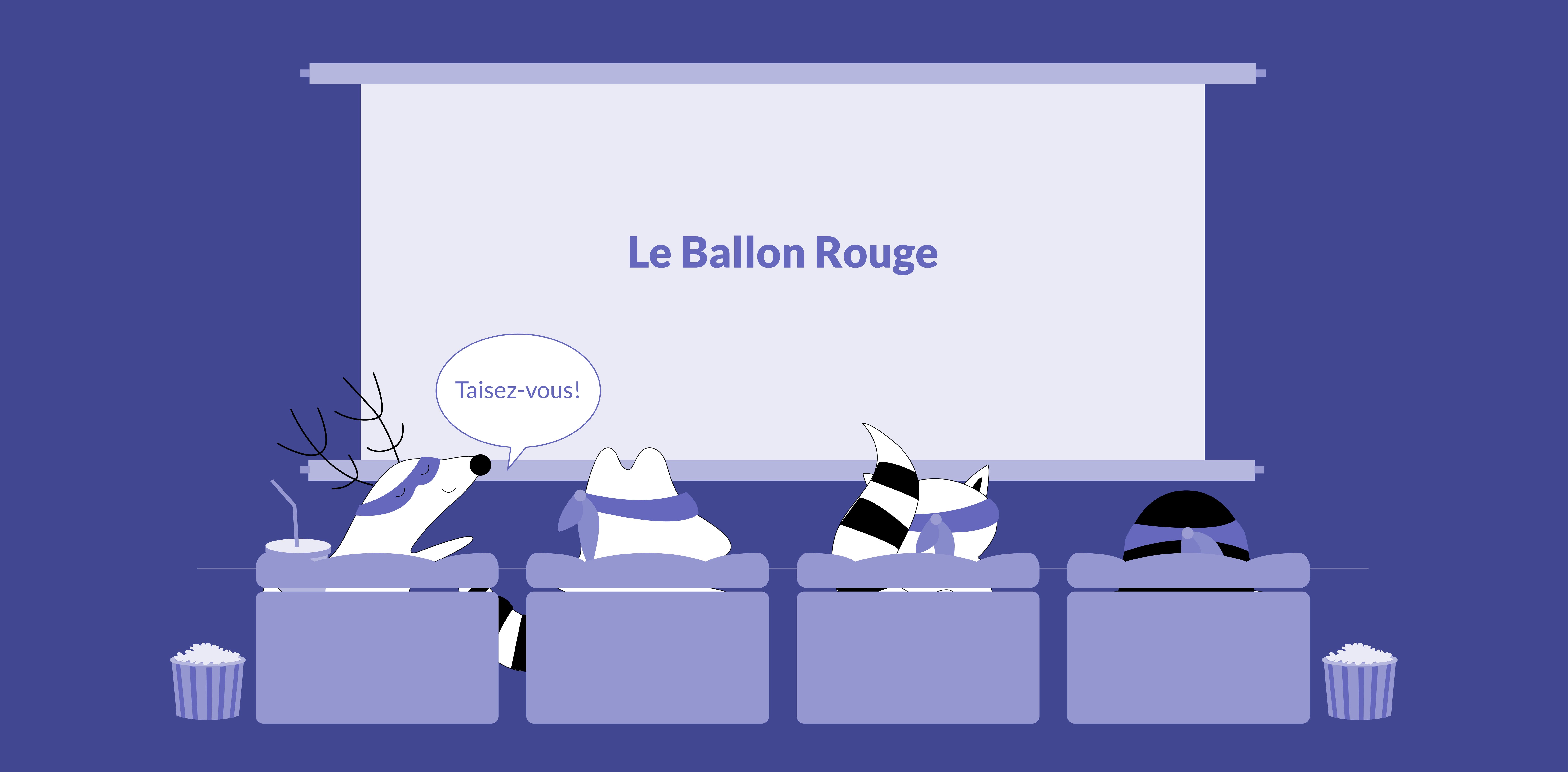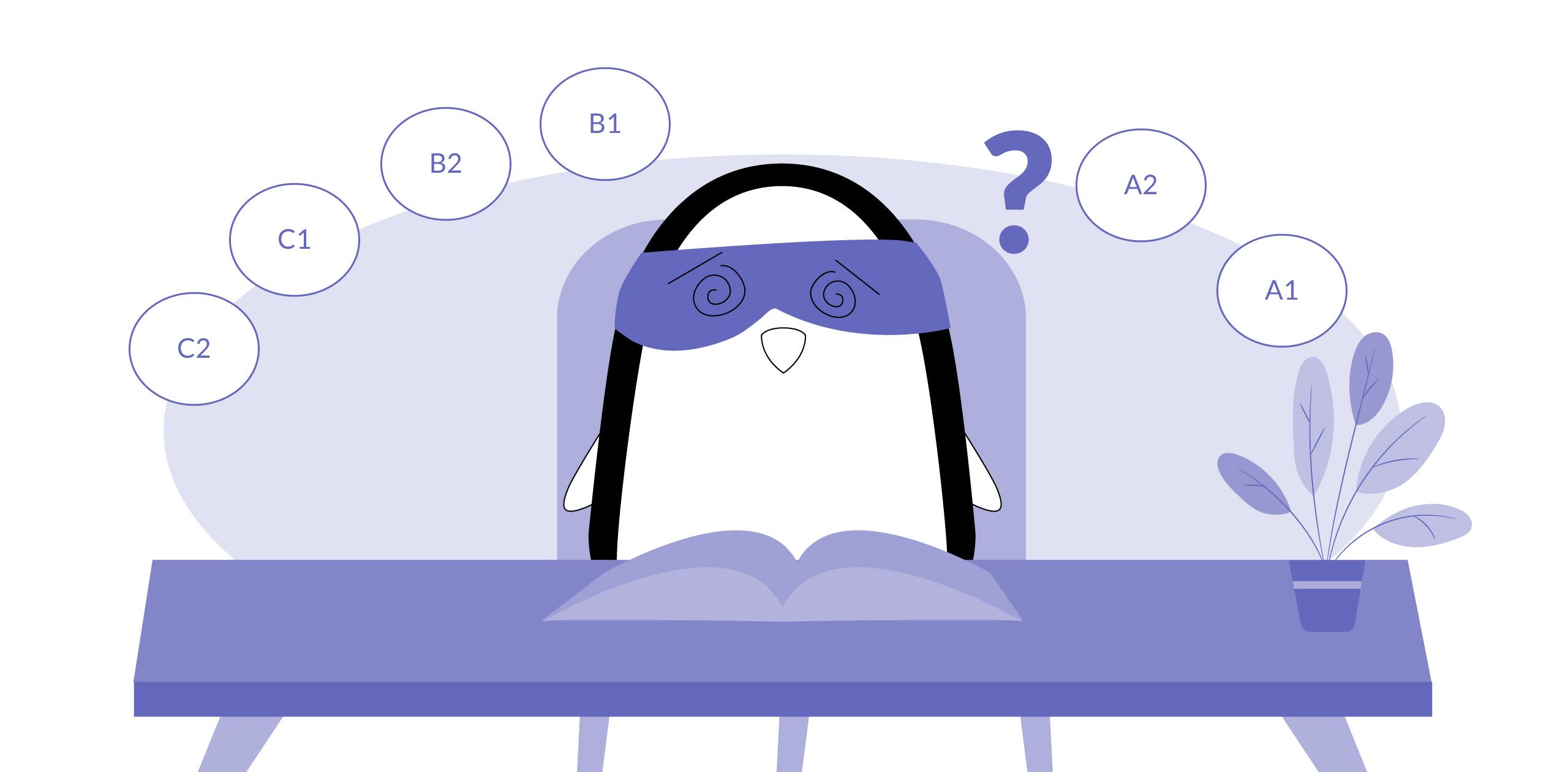
In order to learn a new language, you must start from the very beginning – the basic level that introduces you to the most simple vocabulary and grammar constructions. From here, you can move on to the next levels gradually until you reach proficiency, building on the foundation you created.
Today, there are different ways of determining the language levels around the world, but the most common scale is CEFR (Common European Framework of Reference for Languages). This is an international standard for describing language ability, which classifies each level as a set of skills that can be acquired in a certain time.
Let’s take a look at the six levels of language proficiency by CEFR. We’ll discover together what each level looks like and what exactly you need to know to move to the next one.
Learn French with Langster
A1 – Beginner
A1 is the very first level of language learning and considered to be the beginner level. At this stage, you are introduced to the very basic phrases and grammar constructions of a language.
As a basic user, you will learn how to introduce yourself, ask simple questions about someone’s identity or whereabouts, and be able to handle very basic interactions in a foreign language. You can interact with other people speaking in your target language only on the most simple topics and as long as the other person speaks slowly and clearly.
A1 Level Skills
When you reach the A1 level, you should be familiar with the most basic words and constructions, such as:
- The alphabet and how to write letters;
- Basic greetings such as hello, goodbye, thank you, etc.;
- Numbers from 0-20;
- Telling time in a local clock format;
- Asking and answering simple questions about someone’s identity or whereabouts;
- Using familiar everyday expressions used to satisfy specific needs (such as saying you’re hungry, thirsty, etc.)
A1 level usually takes around 70-100 hours of study to achieve.
A2 – Elementary
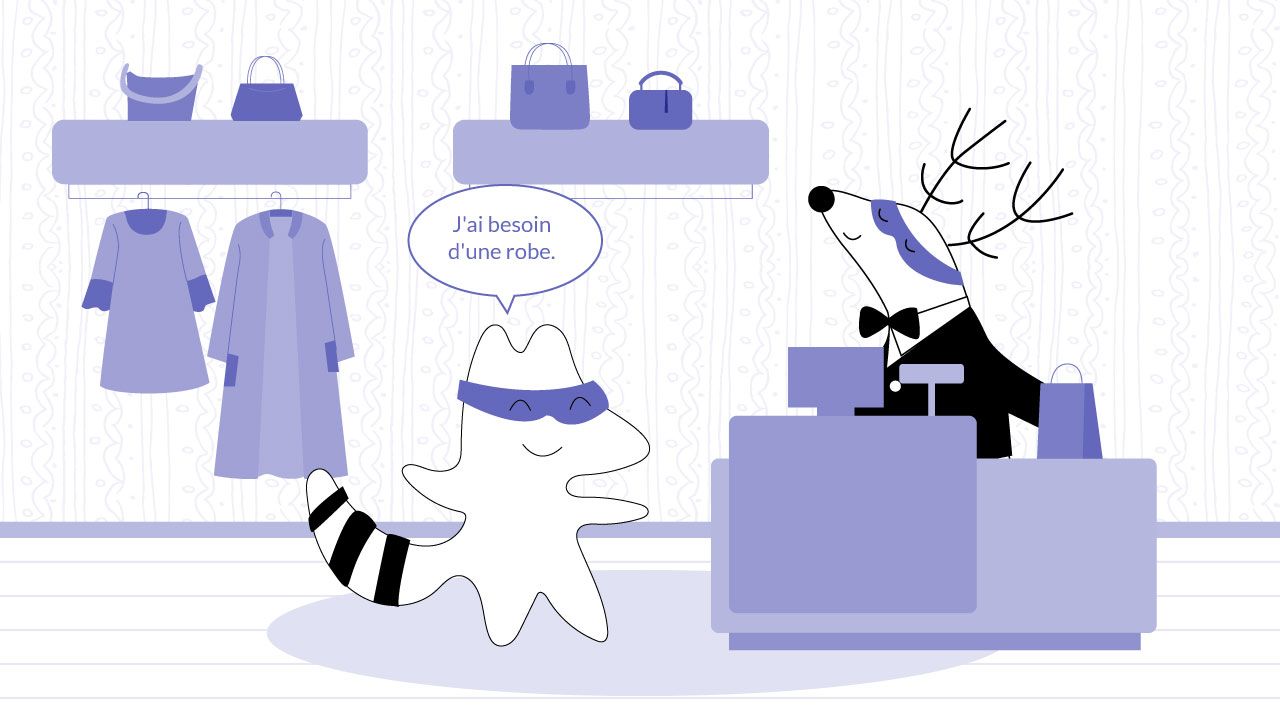
A2 is the second level of CEFR – the level of elementary knowledge. At this stage, you will learn how to understand and use more complex phrases and grammar constructions, start communicating more, and get used to making and fixing mistakes.
At this level, you will be able to start participating in small talk and have conversations with other language users, but only in a simple way and on familiar topics. You will understand simple sentences and use frequent everyday expressions, such as those necessary to go shopping.
You will also learn how to describe aspects of your background or immediate environment in simple terms, as well as how to complete routine tasks that require a direct exchange of information.
A2 Level Skills
After you reach the A2 level, your phrases become more clear and specific, and you can use simple grammatical constructions. For example, you should be familiar with:
- Basic conjugation of regular verbs in the simple present, past, and future tenses;
- Common irregular verbs in the simple tenses;
- The use of articles;
- The use of possessive adjectives, pronouns, and prepositions of place and time;
- Asking and answering questions about simple topics such as family, work, hobbies, etc.;
- Writing short texts such as messages, notes, or descriptions.
Reaching A2 level usually takes around additional 100-150 hours of study, or 170-250 hours of study in total.
B1 – Intermediate
B1 is the third level of CEFR, and it is considered to be the level of intermediate knowledge. At this stage, you will become more confident in using the foreign language and will start expanding your vocabulary and grammar knowledge.
You will also be able to understand the main points of clear, standard input on familiar matters regularly encountered in work, school, leisure, etc. When it comes to grammar, you should be able to freely use the most frequent constructions with reasonable accuracy. You will still make errors, but now, it will become more clear what you are trying to express.
At this level, you will be able to deal with most situations that can arise while traveling and will be able to produce simple, connected texts on topics that are familiar or of personal interest. You will also be able to describe experiences and events, dreams, hopes, and ambitions, as well as briefly give reasons and explanations for your opinions and plans.
B1 Level Skills
At B1 level, you should usually be familiar with:
- Passive voice, conditions mood, and gerund (depending on the language);
- More complex tenses such as the present perfect and past perfect;
- Modal verbs;
- Different types of pronouns;
- Asking and answering questions on a variety of topics that are familiar or of personal interest;
- Writing texts such as descriptions, reports, stories, etc.
Reaching B1 level usually takes around 350-600 hours of study in total.
B2

B2 is the fourth level of CEFR, and it is considered to be the level of upper-intermediate knowledge. At this stage, you will develop your ability to use the foreign language even more fluently and accurately. You will also be able to understand the main ideas of complex text on both concrete and abstract topics, including technical discussions in your field of specialization.
At B2 level, you should become confident enough to express yourself spontaneously when talking to native speakers. You will also be able to use the language flexibly and effectively for social, academic, and professional purposes. When it comes to grammar, you should be able to use most constructions correctly with only occasional errors.
B2 Level Skills
At B2 level, you should usually be able to:
- Have good control over all grammatical tenses;
- Use different types of conditionals and modal verbs;
- Use subjunctive mood and relative clauses;
- Produce clear, detailed texts on a wide range of subjects and explore different points of view;
- Have spontaneous interactions with a degree of fluency and without strain;
- Translate simple texts from a foreign language into your own.
It usually takes about 550-800 hours in total to achieve B2 level.
C1
C1 is the fifth level of CEFR, and it is the level of advanced knowledge. At this stage, you will be able to use the foreign language fluently, accurately, and effectively for social, academic, and professional purposes. You should also have a good command of grammar and vocabulary and be able to understand the implicit meaning in complex texts.
On C1 level, you should be able to follow extended speeches and lectures and understand long, complex technical discussions in your field of specialization. You will also be able to express ideas fluently and spontaneously without much obvious searching for expressions. When it comes to grammar, you should only make occasional errors.
C1 Level Skills
At the C1 level, you should usually be able to:
- Use all grammatical tenses with confidence;
- Use a wide range of vocabulary, including idiomatic expressions;
- Understand the main and implicit ideas of complex texts on both concrete and abstract topics;
- Communicate effectively in a variety of situations;
- Produce clear, well-structured, detailed texts on a wide range of subjects.
Reaching C1 level usually takes around 800-1000 hours of study in total.
C2
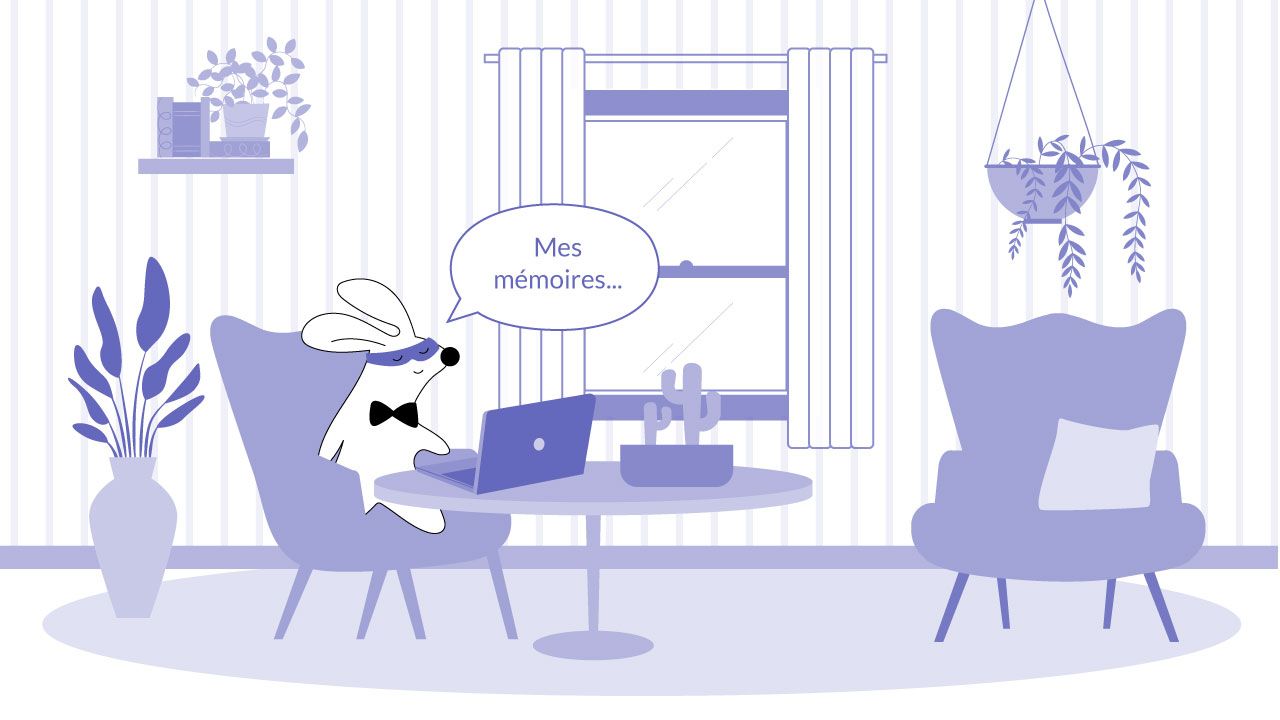
C2 is the sixth and highest level of CEFR, and it is considered to be the level of proficiency. At this stage, you will have a native command of the foreign language and will be able to use it fluently, accurately, and effectively for any purpose.
At C2 level, you should be able to understand almost any type of content you encounter with ease, summarize information regarding even the most unfamiliar and complex topics, and provide arguments in the form of a coherent presentation. You should be able to express yourself fluently and spontaneously, differentiating between meanings in complex scenarios.
When it comes to grammar, you should have decent grammatical control of complex language even if you’re not thinking hard about it.
There are no specific skills you should learn on this level, since it focuses on mastering the language you already know.
It takes an individual amount of time to reach C2 level depending on the person’s learning skills and motivation, but in total, it can take about 1000-1200 hours of study.
Why Do You Need to Know Your CEFR Level?
Knowing your CEFR level is important for a number of reasons. Firstly, it can help you to determine which language learning courses and materials are most appropriate for you. If you know that you are at A2 level, for example, you will want to choose a course that is geared towards beginners rather than intermediates.
Secondly, it can help you to measure your progress as you learn a new language. By tracking your CEFR level over time, you can see how much progress you have made and identify any areas on which you need to focus more attention.
Finally, knowing your CEFR level can be helpful when applying for jobs or studying abroad. If you need to prove your proficiency in a foreign language, having a certificate or transcript showing your CEFR level can be very useful.
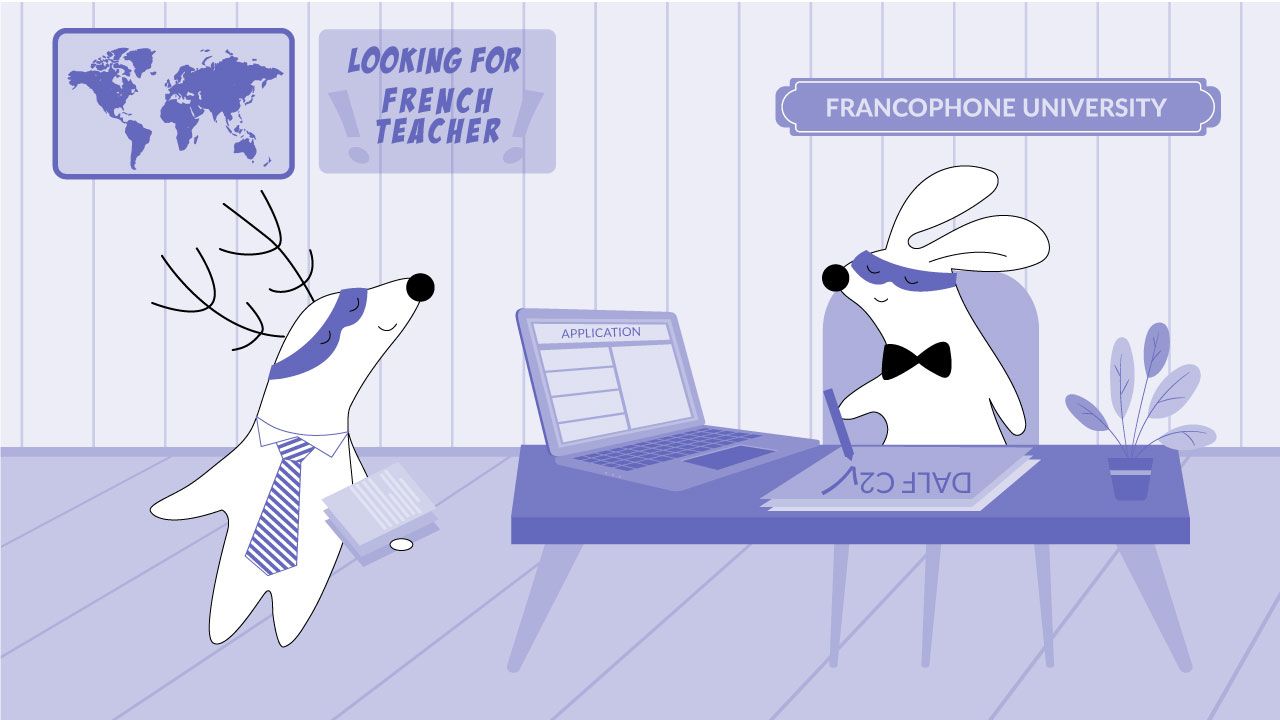
CEFR Certifications
If you would like to get a CEFR certification, you can take a CEFR-accredited language test. These tests are designed to measure your proficiency in a foreign language and award you with a CEFR level based on your results. Some of the most popular CEFR-accredited language tests include
- the Cambridge English Exam
- the DELF/DALF exams (French)
- the DELE exam (Spanish)
If you don’t want to take a formal language test, another option is to get certified through a CEFR-accredited institution. These offer courses and programs that have been specifically designed to help students reach a certain CEFR level.
Examples of CEFR-accredited institutions include the University of Cambridge (English) or the Goethe Institut (German), among others.
Bottom Line
Knowing your CEFR level can be extremely helpful when it comes to language learning. Not only does it help you to determine which courses and materials are best suited for you, but it also allows you to track your progress over time and gives you an estimate of what else you need to learn.
We hope that now you have a better understanding of where you are on your language learning journey and what you need to start working towards reaching your target CEFR level. Just remember: while goals help you stay motivated, it’s important to have fun when learning and not just focus on the deadlines.
So, keep your journey entertaining (for example, with Langster) – and we hope that you reach your target level with ease.







